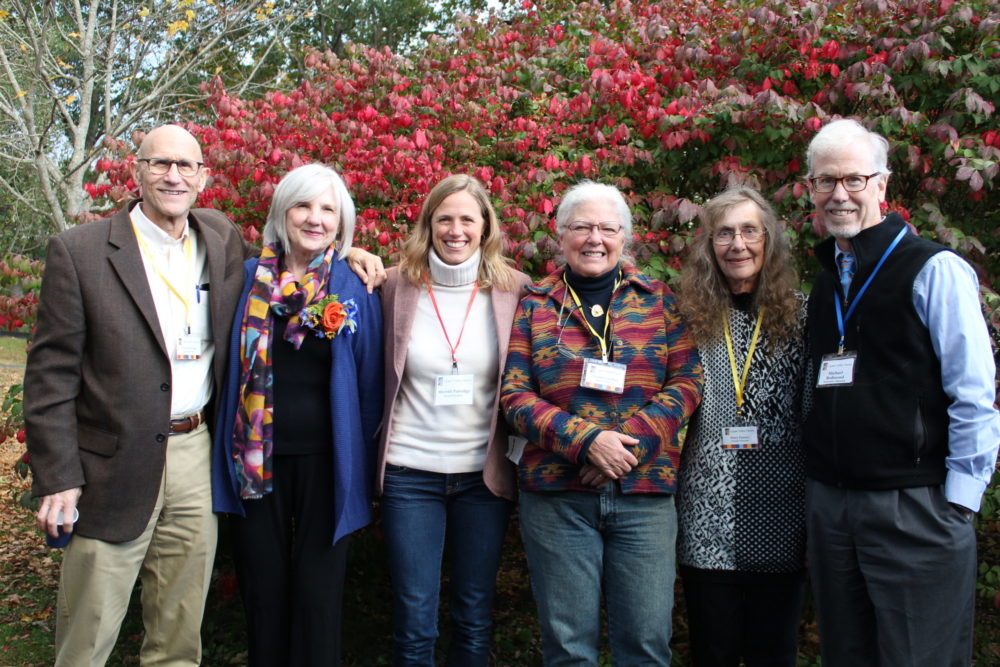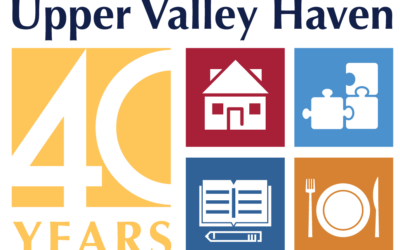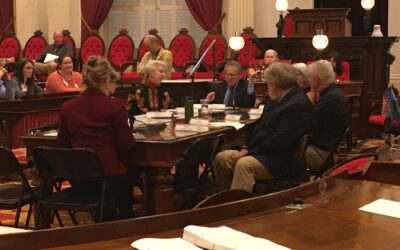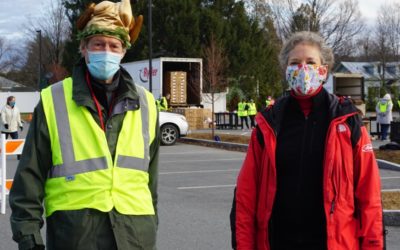
Serving on the Haven Board of Directors
Merritt Patridge, past Haven Board President
I moved to the Upper Valley from New York City in 2011 in conjunction with the start of my graduate studies at the Tuck School of Business at Dartmouth. During my time in New York, I worked on the board of a foundation with a mission to break the cycle of poverty in the city. This experience gave me perspective on urban poverty, and I came to the Upper Valley interested in understanding the complexity and character of rural poverty and eventually being a part of community efforts to address it at its roots.
Tuck has a program for students to serve as fellows on local nonprofit boards. I applied to this program with only one organization in mind – the Upper Valley Haven. I had met Renee Weeks, a clinical leader at the Haven, through my work to create a design workshop on rural poverty at Tuck, and I connected to the Haven’s holistic, community-based approach that Renee taught me about.
I gained more from my fellowship on the Haven board than I gave to the Haven, and a year later, when I had graduated from Tuck and was living and working in the community, I was invited to serve on the board of the Haven. I was humbled, I wanted to continue to work on poverty with the Haven. I wanted to learn with others as part of the Haven’s community. And I hoped to make a meaningful contribution, appreciating how much the Haven community had already given me. You make time for things that matter, and I wanted to make time for the Haven.
While serving on the board of the Haven, I learned about leadership and governance through direct experience and the help of my board colleagues, but what really sticks in my heart is what I learned about poverty. I learned that people come to the Haven for varied reasons, but the reasons often have something in common: it’s not one reason; it’s reasons, plural. It’s a web, interrelated events, issues, and circumstances, and the evolution of lives that we can all relate to. But everyone also comes with resources – relationships, talents, love, opportunities that they’ve yet to understand let alone realize their potential, and more.
We live in a world where cards are stacked against members of our community, where community members are trying to stand on houses of cards built by injustice in our systems that reinforces cycles of poverty. In the Upper Valley, generational poverty and crises of addiction, mental and physical illness, abusive relationships, and sustaining work that doesn’t pay a living wage are hidden throughout our wooded, rugged landscape. The Haven gave me the opportunity to get to know, connect with, and learn from people facing these challenges.
I learned that paths zig and zag and lasting change can take time, but kindness and generosity come, hearts open, and people overcome seemingly impossible circumstances. The Haven is there for the whole person. It holds up the strengths in each person, and it’s committed, patient, creative, and resourceful in helping people find better ways forward – find hope and possibility. Relationship enables and sustains transformation.
The Haven board that I joined in 2014 was a committed group of humble, service-minded people with different perspectives and experiences who understood that the Haven exists for, and in turn is sustained by, the Upper Valley community. Like the organization itself, the board worked to stay attuned to needs in partnership with the community and emphasized inclusion in everything we did.
In the early days of my tenure, we did more hands-on work than we did by the end of it. The Board’s work became more focused and strategic. That initial hands-on work was still less than was done by some of my predecessors on the board who had volunteered in the shelters where we now employ professional staff. The Board developed governance structures, cultivated leadership, engaged with the community, and collaborated with staff to grow and deepen services. We were able to take the work to the next level with highly trained professional staff, a trusted place and voice in our community, and the ability to touch lives from volunteers to donors to staff in addition to the people living in the shelters, getting groceries at our food shelf, or seeking supportive services.
As a young board member at this time in the Haven’s history, I had the benefit of learning from many of my Board colleagues: Anna Horvath who put the heart and soul of the organization into each and every strategic and tactical decision; Roger Shepherd who was available anytime including nights and weekends for any physical property needs; Doug Loudon who framed our financial choices with clarity and depth; Jane Darrach who had the wit and wisdom to cut through any challenge; and many others who showed me the power of openness and compassion in governance and organizational leadership.
While I was on the board, we often talked about the Haven’s history in terms of chapters and studied the needs in the community to evolve to better serve them. If I were to provide any advice to current and future members of the Haven board, it would be to continue to stay close to community needs, listen deeply to those we serve, partner with other community groups, and steward the Haven as a community resource that constantly digs deep, learns, and evolves, staying true to its core values and constantly writing new chapters.
Non-profits working with poverty often talk about the elusive goal of putting themselves out of business, implying that poverty will be eliminated, and that their work will no longer be needed. While I think we can and should eliminate poverty in this country and this community, I don’t think the Haven should put itself out of business. It exists for all of us. I have seen so many people transformed by the work of supporting one another and supporting community, including myself, and the human need for compassionate care and community connection can continue to bind us together. I also find it empowering that individually, we can all contribute to addressing poverty by bringing awareness of it into everything we do – in our families, in our communities, at work, and as participants in a democracy.


